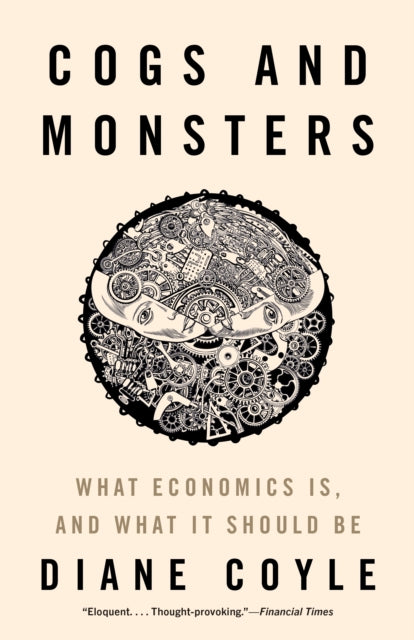Coyle, Diane
Cogs and Monsters : What Economics Is, and What It Should Be
Cogs and Monsters : What Economics Is, and What It Should Be
Couldn't load pickup availability
Author: Coyle, Diane
Society & social sciences
Published on 12 October 2021 by PRINCETON UNIVERSITY PRESS in the United States.
Hardback | 272 pages, 4 b/w illus.
149 x 222 x 30 | 404g
How economics needs to change to keep pace with the twenty-first century and the digital economyDigital technology, big data, big tech, machine learning, and AI are revolutionizing both the tools of economics and the phenomena it seeks to measure, understand, and shape. In Cogs and Monsters, Diane Coyle explores the enormous problems-but also opportunities-facing economics today and examines what it must do to help policymakers solve the world's crises, from pandemic recovery and inequality to slow growth and the climate emergency.
Mainstream economics, Coyle says, still assumes people are 'cogs'-self-interested, calculating, independent agents interacting in defined contexts. But the digital economy is much more characterized by 'monsters'-untethered, snowballing, and socially influenced unknowns. What is worse, by treating people as cogs, economics is creating its own monsters, leaving itself without the tools to understand the new problems it faces. In response, Coyle asks whether economic individualism is still valid in the digital economy, whether we need to measure growth and progress in new ways, and whether economics can ever be objective, since it influences what it analyzes. Just as important, the discipline needs to correct its striking lack of diversity and inclusion if it is to be able to offer new solutions to new problems.
Filled with original insights, Cogs and Monsters offers a road map for how economics can adapt to the rewiring of society, including by digital technologies, and realize its potential to play a hugely positive role in the twenty-first century.
If you cannot find the book you're after, please click here.
View full details

